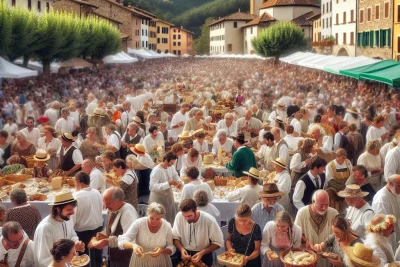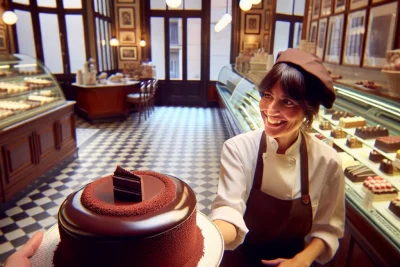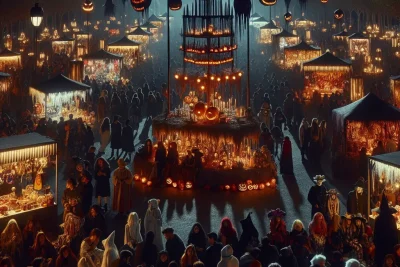
Norwegian Eurovision Representative Surprises Everyone by Speaking Catalan
The Eurovision Song Contest is a stage that showcases not only musical talent but also diverse cultures and languages. In 2025, the competition surprised viewers with a remarkable moment that went viral. Kyle Alessandro, the representative from Norway, stunned everyone by speaking in Catalan during a live interview. This unexpected showcase of language has sparked conversations and captured the attention of audiences worldwide, highlighting the importance of cultural exchange.
The Eurovision Stage
The Eurovision Song Contest is a global event watched by millions each year, where countries compete with original songs. In 2025, Austria emerged as the winner with the emotional ballad "Wasted Love" performed by JJ (Johannes Pietsch), surpassing strong competitors like Israel. However, amid this competitive atmosphere, it was Kyle Alessandro's off-stage moment that created a buzz. Speaking in Catalan during an interview, he expressed his admiration for the language and its culture.
Language Learning Experience
Kyle, only 19, shared that he learned Catalan during an exchange program in Valencia a few years ago. Despite his limited speaking ability, he stated, "I understand Catalan and Valencian perfectly." This connection to the Catalan culture resonated with the audience, as many appreciated his efforts to embrace and celebrate the language. His casual mention of having a personal connection with Catalonia struck a chord with the audience, prompting widespread admiration and praise on social media platforms like Twitter and TikTok.
Cultural Significance of the Event
Embracing Diversity
Kyle's foray into speaking Catalan illustrates the power of cultural exchange and the importance of language learning in fostering understanding between different communities. By using Catalan, he not only honored his experience but also highlighted the significance of recognizing and celebrating linguistic diversity. This moment reflects a growing awareness of the cultural and linguistic plurality that exists within Europe, paving the way for more inclusive dialogues in the future.
The social media landscape erupted with positive reactions following Kyle's interview. Many users praised his effort to connect with Catalan speakers and musicians, with comments like, "Best moment of Eurovision, without a doubt," and "Kyle speaks better than many politicians back home!" The warm reception showcased the audience's appreciation for genuine cultural engagement and expression. However, some comments emphasized the urgency of clarifying that Valencian and Catalan are variants of the same language, addressing misconceptions about linguistic differences.
Political Context and Reactions
Tension Surrounding Eurovision
This year’s Eurovision was not without its controversies. The event took place against a backdrop of geopolitical tensions, with discussions concerning the Gaza conflict present in media coverage. Some performers faced potential sanctions from the organizing body for touching on sensitive issues. Despite this, immediate responses included public statements advocating for human rights, which highlighted the importance of free expression at such a prominent event.
Impact on Cultural Dialogue
Kyle Alessandro's moment at Eurovision transports the audience back to the core of what the contest represents: unity through diversity. His willingness to engage with Catalan culture effectively opened discussions about national identities and the significance of minority languages. Language serves as a powerful bridge connecting individuals and communities, encapsulating personal histories and cultural narratives.
The Future of Cultural Exchange at Eurovision
Encouraging Linguistic Diversity
The response to Kyle's use of Catalan reinforces the belief that Eurovision can serve as a platform for cultural appreciation. As we outline the potential for future contests, the emphasis should be placed on encouraging representatives from various nations to embrace and showcase their linguistic heritage. Programs like exchange initiatives, funded language courses, and cultural collaborations could further enhance the cultural representation on a stage that reaches a global audience.
Call for Greater Inclusivity
In future competitions, it would be beneficial for Eurovision to continue promoting cultural dialogues that challenge conventional norms. By supporting inclusivity and embracing different languages, Eurovision can evolve into a more significant cultural hub for conversations surrounding linguistic rights and minority languages within Europe. It is crucial for future generations of artists to take this opportunity to celebrate their roots while fostering meaningful connections across borders.
Ultimately, Kyle Alessandro's heartfelt embrace of Catalan during Eurovision encapsulates the spirit of cultural exchange. As we move forward, let's continue to celebrate diversity, honor linguistic heritage, and pave the way for a more connected future, one song at a time.
If you want to know other articles similar to A Surprising Note: Norwegian Eurovision Star Kyle Alessandro Celebrates Catalan Culture on Stage you can visit the Daily News category.



